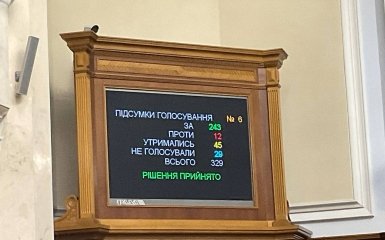On February 7, the Parliament of Ukraine supported the bill of the Cabinet of Ministers on mobilisation in the first reading.
The bill on mobilisation was adopted in the first reading
MP Yaroslav Zheleznyak officially confirmed in the first reading that the Verkhovna Rada supported government bill No. 10449 on strengthening mobilisation.
For — 243. (My colleagues and I from the faction did NOT vote.) By factions: Servant of the People — 178, European Solidarity — 0, Batkivshchyna — 0, Platform for Life and Peace — 17, For the Future — 7, Voice — 3, Trust — 18, Restoration of Ukraine — 12, Non-factional — 8.

Yaroslav Zheleznyak
Deputy of the Verkhovna Rada
It is important to understand that the document was supported without the Committee's proposals.
The NP draws noted that there is time to make amendments until February 21, after which there will be a vote in the second reading.
"That is, the bill as a whole will most likely be adopted in the last week of February, signed at the beginning of March and will enter into force in a month, i.e. in April," concluded Zheleznyak.
The parliament corrected the legal norm regarding military personnel in terms of ensuring their right to biological parentage
A total of 264 MPs voted for bill No. 10448.
As Yaroslav Zheleznyak emphasises, the draft Law proposes to provide for:
In the event of the death or declaration of death of a person whose reproductive cells are stored, following this Law, their storage is carried out free of charge within three years from the moment of the death of this person. After the expiration of this period, further storage of such cells can be extended at the expense of another person specified in the person's order regarding his reproductive cells.
A natural person whose reproductive cells are stored following the law has the right to dispose of them in the event of his death.
In the case of using the reproductive cells of a person who made the appropriate order in the event of his death for the conception of a child, this natural person is recognised as the father or mother of the child born in this way;
To establish that the expression of a person's will, made and certified by a notary before the entry into force of this Law regarding own reproductive cells, is the basis for using assisted reproductive technologies using these reproductive cells.
More on the topic
- Category
- Ukraine
- Publication date
- Додати до обраного


